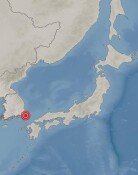Toyota to pay $1.2 bil to settle criminal probe
Toyota to pay $1.2 bil to settle criminal probe
Posted March. 21, 2014 04:04,
Toyota Motor has admitted that it provided false information regarding the issue of unintended acceleration and agreed that it would pay 1.2 billion dollars (about 1.3 trillion won) to the U.S. Department of Justice as a penalty. This is the largest amount that the United States has ever imposed on an automaker. Between 2009 and 2010, the Japanese automaker already spent 4 billion dollars on recalling its 12 million cars and reimbursing the customers for unintended acceleration. However, the U.S. did not stop its investigation over the past four years, so the automaker had to pursue a settlement by paying a significant amount of penalty.
In 2009, a family of four who drove a Toyotas Lexus vehicle in San Diego, California was killed in an accident caused by unintended acceleration. Then, Toyata blamed the drivers mistake for the accident. Not long after the first accident, a similar one occurred again. This time, the company claimed that an ill-fitting floor mat caused the accident by unintentionally pressing the acceleration pedal. The companys careless response and lies have cost the company 1.2 billion dollars in the end.
After the accidents, the U.S. government used all its power to identify the cause of the accidents, along with the support from the Federation of American Scientists and the National Aeronautics and Space Administration. Although it failed to find the exact cause of the accidents, the U.S. governments will to keep its customers safe and have businesses take their responsibilities remained strong. This shows that the United States, a home to market economy, values corporate integrity and trust.
Unintended acceleration has consistently raised controversies in Korea as well. But none of the cases have been admitted to be caused by vehicle malfunctioning. Every year, over 200 cases of car accidents possibly caused by unintended acceleration are reported to the Korea Consumer Agency. However, Hyundai Motor and Kia Motors, two major automakers in the domestic market, are reluctant to cooperating for investigation on the plea of the need to protect trade secrets. Furthermore, the Land, Infrastructure and Transport announced last year that it would be logical to think that (unintended acceleration) does not exist with the current level of technology after demonstrating some tests on acceleration to the public for two days only.
Some say the thorough and strict approaches by the U.S. are intended to respond to the Japanese automakers, which take up a great share in the U.S. market. However, a U.S. cigarette company once paid a fine of 200 billion dollars, an amount even larger than that for Toyota. General Motors has recently recalled 1.6 million cars due to a defect in the ignition system. In the process, an accusation that the company had ignored the problem for over 10 years has been raised. Will Washington apply the same standards to the U.S. automaker? It would be interesting to watch it.







